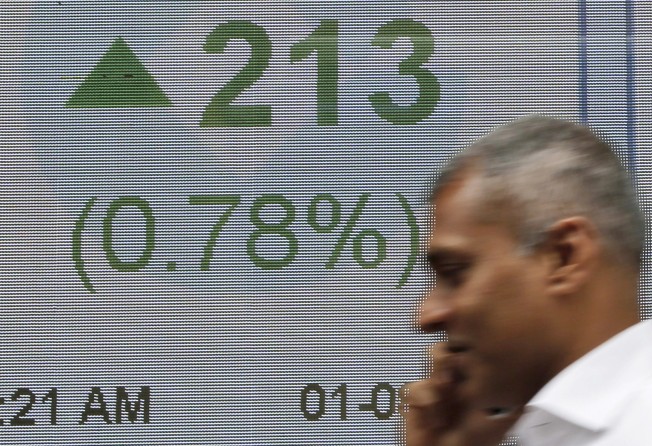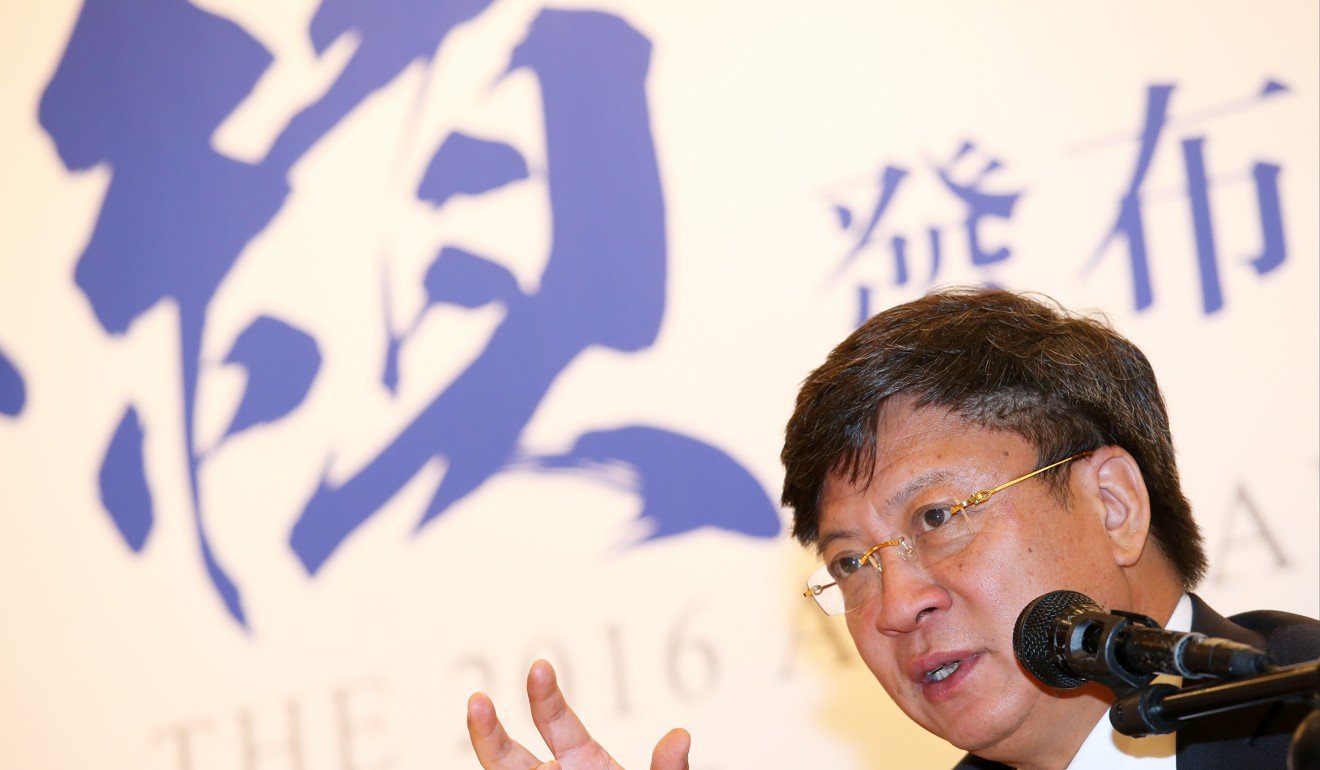Hang Seng Index closes above 28,000 for first time since May 2015 as Shimao, Sunac surge

Hong Kong’s Hang Seng Index closed above the 28,000 level for the first time since May 2015 as fears over North Korea’s missile launch eased and China’s yuan rose to a 14-month high.
The Hang Seng Index gained 1.2 per cent, or 329.60 points, to 28,094.61 at the close on Wednesday. The Hang Seng China Enterprises Index, the H-share gauge, added 0.7 per cent. Trading volumes on the city’s exchange were 10 per cent below the 30-day average, according to data compiled by Bloomberg. Mainland China’s equity benchmark slipped as insurance companies fell.
Hong Kong equities resumed their bull run, recouping Tuesday’s losses sparked by North Korea’s firing of a missile over Japan, as companies including Shimao Property Holdings posted higher first-half profits. US stocks rebounded overnight and the yuan strengthened.
The Hang Seng Index has advanced 28 per cent this year, the best performer among Asia’s major markets, as lower valuations and stabilisation in China’s economic growth lure fund inflows.
“Sentiment is recovering after the US markets closed higher on Tuesday,” said Stanley Chan, director of research at Emperor Securities. “Confidence is also building on strong earnings results, and for China’s property sector in third- and fourth-tier cities.”
The Hang Seng Index’s real-estate gauge rose 1 per cent. Shimao Property jumped 16 per cent to HK$16.26, its highest level since June 2015, after reporting net profit rose 28 per cent from a year earlier in the first half, excluding extraordinary gains last year. The developer also declared an interim dividend of HK$0.40, compared to a special interim dividend of HK$0.32 a year ago. Credit Suisse and JPMorgan raised their target prices for the Shanghai-based property developer to HK$17 and HK$18, respectively.
Sunac China Holdings, which said last week that first-half net income may have jumped 15 fold from a year earlier, surged 10 per cent to a record HK$22.90. The interim report is due Thursday.
Industrial and Commercial Bank of China rose 1.5 per cent to HK$6.02. The nation’s biggest lender by assets said after the market closed that profit for the first six months increased 1.9 per cent to 153 billion yuan (US$23.2 billion).
Postal Savings Bank of China added 3 per cent to HK$4.80 after the lender said first-half profit increased 15 per cent from last year and that it plans to sell as many as 5.17 billion shares on the mainland’s stock market.
The yuan strengthened to 6.5922 per dollar, its highest level since June 2016, helping to boost airline stocks as the appreciation of the currency reduces their repatriated amount of foreign debt.
China Eastern Airlines rose 3.1 per cent to HK$4.36 while China Southern Airlines gained 4.4 per cent to HK$6.17.
The Shanghai Composite Index slipped 0.1 per cent, or 1.60 points, to 3,363.63 at the close. The CSI 300 Index of big-cap shares ended almost unchanged and the ChiNext gauge of smaller firms added 0.4 per cent.
Insurance stocks provided the major drag on the index amid profit taking pressure. China Life Insurance fell 2.1 per cent to 29.39 yuan, paring its gain to 22 per cent this year. Ping An Insurance Group of China slipped 1.1 per cent to 56.41 yuan, trimming its advance to 59 per cent so far in 2017.
Sany Heavy Industry, the nation’s biggest machinery maker, tumbled 5.3 per cent to 8.05 yuan, the steepest loss in two weeks. Even with an eight fold jump in first-half profit, Sany’s net income of 1.16 billion yuan trailed the estimate of 1.7 billion yuan surveyed by Bloomberg.
